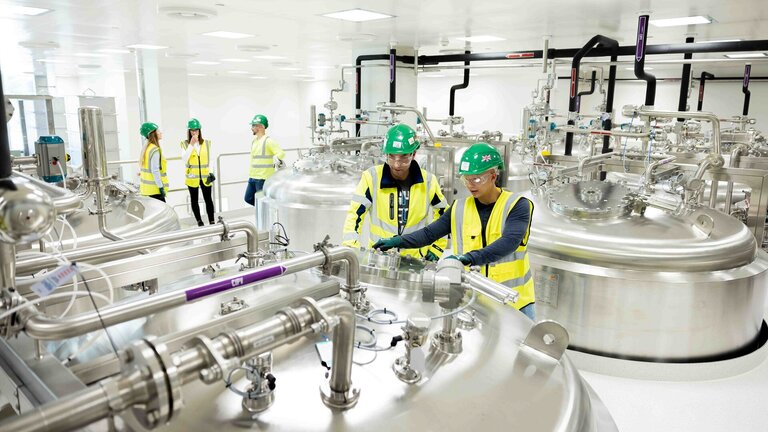It is a project of superlatives: Ratiopharm's parent company Teva is investing around one billion US dollars in biotechnological production at its Ulm site. Starting in 2025, biopharmaceuticals will be produced in giant bioreactors in the Danube Valley near Ulm. These drugs are used for treating complex, sometimes life-threatening diseases, such as cancer or tumor illnesses, or for pain patients. Drees & Sommer, a company which specializes in construction and real estate consulting, supports Teva during the demanding building and commissioning phases.
From the outside, the building with the project name Genesis already looks nearly finished. Inside, however, the final preparatory work is going at full speed to inspect and commission the production facilities and train the employees. It also becomes clear very quickly why planning and construction are so challenging. ‘The production of biopharmaceuticals is highly complex and technologically demanding,’ explains Stefan Fügenschuh, who heads Teva Deutschland‘s biotechnology division. This has nothing to do with simple tablet presses, because the production of biopharmaceutical medicines is fundamentally different from the manufacture of pharmaceutical drugs.
Teva has commissioned Drees & Sommer’s life sciences experts in order to ensure efficient construction of the complex biotechnology plant. The company’s team has been supporting the construction processes of the new building since the end of 2019, all the while managing a series of challenges. As a first step, the construction experts put the project through its paces in a detailed 360-degree analysis. This involved examining all planning, processes and the entire organization. The team then developed optimization proposals based on this analysis. ‘A clear requirements profile is important for a smooth construction workflow. Together with the client, we defined clear decision-making paths as a first step, and set realistic targets for the timeframe and budget within which the new building could be completed,‘ explains Jannik Grünenbaum, project team leader at Drees & Sommer.
For more information, please see our press release.
